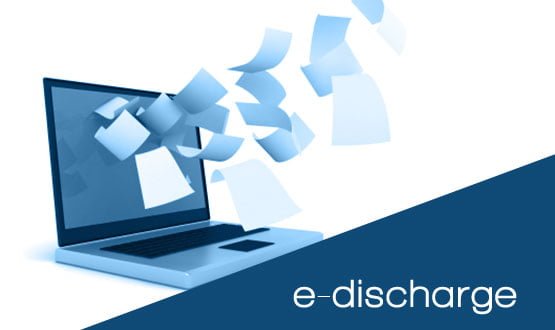E-discharge standards to GPs ‘poor’
- 10 November 2016

Central NHS organisations are rebooting attempts to improve communication between emergency departments and GPs, with the ‘perpetual winter’ crisis now affecting the NHS spurring new efforts.
NHS Digital has commissioned the Professional Record Standards Body, in partnership with the Royal College of Physicians, to develop standards for e-discharge summaries from emergency departments to GPs.
Standards should be finalised by the end of the year. Although they probably won’t be used in hospitals until at least October next year, those involved in the project say it is being given additional impetus by the pressing need for more information on the pressures on hospitals.
The move also comes as many emergency departments continue to send GPs faxed or hand written paper discharge summaries, with patchy coding and legibility.
“I receive little yellow letters often written in a scrawl in a great hurry,” John Williams, a GP involved in the standards as clinical advisor at the Royal College of General Practitioners, told Digital Health News. “If it’s just readable, it will be a huge step forward.”
Discharge summaries have been a long-standing area for NHS IT effort. Trusts were set a target to get discharge summaries to GPs within 48 hours almost a decade ago, and regulatory bodies have frequently criticised the content of the summaries sent.
Guidance from NHS England on that target said that letters and fax would no longer be acceptable, and that while emails with attachments would count, these should be phased out over time.
Despite this, one indicator derived from NHS England’s digital maturity assessment earlier this year showed that about a third of acute trusts are still not sending discharge notices electronically.
From next month, acute trusts will also be required to use standard clinical headings in electronic discharge summaries sent to GPs.
An NHS England spokeswoman told Digital Health News this week neither the uptake of e-discharges to GPs or the use of standard clinical heading are monitored nationally. “It would be for commissioners to monitor locally.”
Tom Hughes, involved as clinical lead at the Royal College of Emergency Medicine, said the colleges had been involved in the standards project for the past 18 months, but it had gathered pace recently amid renewed interest from the centre.
“In the last couple of months NHS England have really got into this. Fairly senior people have said they don’t want to go through another winter not knowing what will happen on the frontline.”
However, the speed at which the standards can be rolled out is reliant on another project, the Emergency Care Dataset. That project, which is meant to standardise and modernise data collection across NHS emergency departments, is not expected to be used till at least October next year.
Darren Wooldridge, health informatics project manager at Royal College of Physicians, said the standards will create a structured set of fields that clinicians should be able to fill out electronically and transfer to GPs’ systems.
Among other fields, these would include the patient’s chief complaint, the presentation acuity and the discharge diagnosis.
It would also track whether a patient was provided with a copy of their discharge letter, hopefully building in another safety net to ensure important clinical information is passed to GPs.
The e-discharges to GPs are part of a wider effort to standardise and structure communications across health care settings.
In July 2015, a Professional Records Standards Body survey found that “urgent improvements” were needed to discharge summaries and referrals.
Delayed, incomplete and illegibility information was creating difficulties for medical reconciliation, with discharges and referrals from emergency departments to GPs identified as “by far the highest priorities”.




